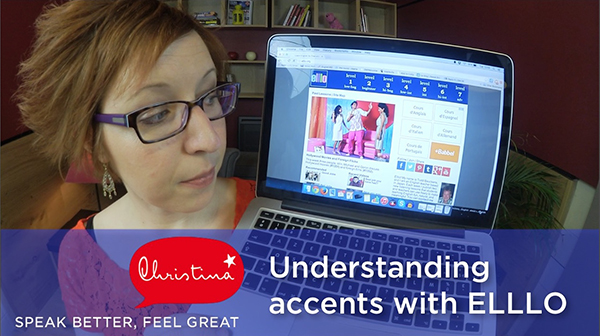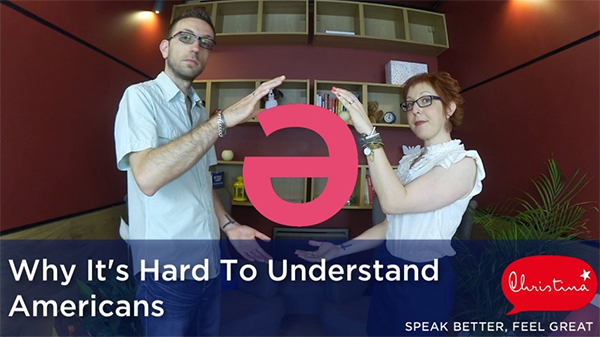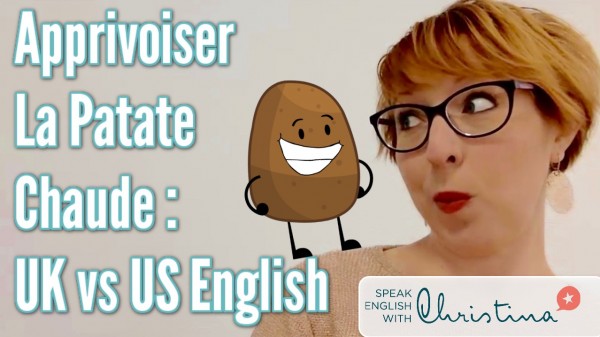
Hey there, and welcome to Speak English with Christina, where you’ll have fun becoming fluent in American English. You’ve probably already realized that the way you write English and the way your pronounce English are often totally different. You see this: “going to”, and you hear “gonna.”
And did you know there’s another way Americans pronounce this expression, “going to”? You’ll never guess what it is.
Let’s find out!
GOING TO, LEVEL 1
You probably have already heard of “gonna”. This is a very common way that Americans say “going to”. In fact we say “gonna” more than we say going to. But we only use it with verbs, like:
“I’m gonna go shopping tomorrow.” Not “I’m going to go shopping tomorrow.” But, say it with me “I’m gonna go shopping tomorrow.”
“Are you gonna come with me?” Not “Are you going to come with me?” But, say it with me “Are you gonna come with me?”
“Mike’s gonna take a trip to California next month.” Not “Mike’s going to take a trip to California”, but, say it with me, “Mike’s gonna take a trip to California.”
And we use “gonna” with everyone:
I’m gonna, you’re gonna, he’s gonna, she’s gonna, it’s gonna, we’re gonna, they’re gonna. If you use these expressions when speaking to Americans, it sounds more natural than articulating “I’m going to”
OK, so gonna is, let’s say Level 1 of natural American pronunciation. Ready for level 2?
GOING TO, LEVEL 2
Now, we’re gonna cross over to the dark side of American pronunciation.
Ambassador, I am your teacher!
Instead of saying “I’m going to go”, Americans will sometimes say… “Imma go.”
Mmmhmm. Imma explain that for you. Often you’ll hear “Imma” to mean “I’m going to.”
Listen to these examples: “Imma go up to the supermarket, you need anything?” “Imma go up to the supermarket, you need anything?”
Or this one: “Imma get a cup of coffee. You want one?” “Imma get a cup of coffee. You want one?”
So if you hear “Imma + verb”, yep, that translates to “I’m going to + verb”.
Say this with me “Imma get a cup of coffee.” “Imma get a cup of coffee.”
Now, actually, it’s more important for you to understand “imma” than it is for you to use it. It’s absolutely fine to use I’m gonna get a cup of coffee.
But for your comprehension, here are some other examples. Close your eyes and just listen to the sounds:
Imma take the day off Friday.
Imma stop by the post office tomorrow morning.
Imma ask Lisa if she wants to come with us.
Could you understand me?
If you closed your eyes (and I know you did!) you can go back and watch that sequence to see the sentences that I said.
Fortunately, the other “advanced” levels of “going to” are less strange than imma. In fact, they’re pretty easy. It’s just that we drop the verb “are”.
Instead of saying “You’re gonna go”, we say “You gonna go”. Instead of “we’re gonna go”, we say “we gonna go”, and instead of “they’re gonna go”, we say “they gonna go.”
Listen to these examples, and say them with me:
You gonna go on vacation this year?
We gonna go to Mississippi this year. (And that’s true, Imma go to Mississippi in about 2 weeks!)
They gonna go
What about Tim and Rachel, where they gonna go?
Notice that the structure didn’t change between the questions and the statements:
You gonna go on vacation this year?
Yeah, we gonna go to Mississippi.
THE RECAP
So just to recap, it’s written like this , but it’s more natural to pronounce it like this (say this with me): I’m gonna go, you’re gonna go, he’s gonna go, she’s gonna go, it’s gonna go we’re gonna go, they’re gonna go.
And if you want to understand Americans when they talk fast, you need to recognize Imma go, you gonna go, he gonna go, she gonna go, it gonna go, we gonna go, they gonna go.
It would be so easy if Americans spoke slowly, if they articulated every syllable and word. But nope, we talk like we have a hot potato in our mouths. Or in the words of my French husband “like a boat motor that won’t start.”
Now, at least your ears are prepared!
WHAT ABOUT YOU?
Have you ever noticed that Americans talk like this? Have you heard any other expressions that sound totally different from the way we write them?
If you want more lessons that go into more detail about pronunciation and comprehension, go to this page where you’ll get a kit to help you understand the American “hot potato” accent.
Those 10 lessons will make a big difference in the way Americans understand you, and how you understand them!
Thanks so much for being part of the Speak English Community.
I’m Christina, and I’ll see you next week!

<script async data-uid=”8b458f887b” src=”https://f.convertkit.com/8b458f887b/09faf432ac.js”></script>
More English lessons...
Click the image to see the lesson









You are just GREAT Christina!!! It’s a so simple and funny way to learn English with you!
Thanks again 🙂
Hi Monia! Good to see you here! And thanks for your compliment! It’s always my goal to make it fun & easy to learn English!
Christina, you’re amazing! Thank you! I love your sense of humor combined with the lessons. 🙂
Hi Jeanne, thank you so much! And sorry for not getting back to you sooner! I was getting everything finalized for my trip to the US, but now I’m here! Happy to have you here in the community!
Hi Christina, you’re the easy key to resolve all my english learning difficulties. I like you si much Christina.
See you.
Fahim
Thank you so much, Fahim! I’m glad to help you progress in English easily! Glad to have you here.
think you Christina for all you do for me, you are the key for my english i congratulate you
Thank you very much Ngonga, I’m honored! Keep up your motivation!
Wooww…u r amazing..and i really like ur all videos
Thank you so much, Bhawna! I’m glad you’re having fun learning English with me!